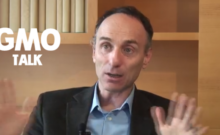As genetically modified foods are implemented into more and more products, consumers worry about the potential harms these foods can cause. There are several health and environmental concerns regarding GMO foods. Many people also find the use of genetically modified organism ingredients to be ethically wrong and detrimental in the long run. Unknown Consequences One of the most common concerns regarding GMO products is that there have not been enough studies to predict the possible consequences over time. Scientists and lawmakers frankly have no idea what types of side effects genetically modified foods could produce over long periods of time, yet they do not call for products to be labeled with these ingredients. Consumers then must blindly purchase food, seeds and other items without knowing whether or not these goods contain engineered organisms, leaving them vulnerable to whatever potential consequences these products may present in the future. At the very least, many consumers simply demand that these foods be labeled. Lack of Food Diversity The more modified foods that companies produce, the more biodiversity on Earth is at risk. Modified plants pass on their traits to the next generation of plants as they grow, and each new generation of seed is different from the previous as they cross pollinate and change. This not only threatens the real foods that are grown to support human life but the plants that support entire ecosystems. If modified foods are found to be harmful in the future, there is a risk that our food source will be permanently tainted due to all of these genetic modifications. Other wildlife is also at risk of nutritional loss as these foods become more prevalent. Too Many Chemicals Americans are already concerned about the number of chemicals from pesticides and herbicides present in food. Many of these chemicals are outlawed in other nations, which causes even more of a concern. Genetically altered foods are also outlawed or regulated in some other countries, prompting citizens to question their overall safety. Studies indicate that farmers need to use up to 400 million more pounds of pesticide on GMO foods than on actual crops, resulting in even more chemicals on consumers’ tables. Some modified foods are even grown containing pesticides. Possible Harm Pesticides themselves are harmful when ingested. Some have been linked to cancer, endocrine system disruption, kidney failure and neurotoxicity, among other problems. But a genetically modified organism itself has the potential to be harmful as well. Some studies on these substances indicate that they may cause tumors in rats, though more studies need to be conducted in order to determine possible dangers and effects on human beings. Producers of these products often use loopholes to skirt around environmental laws and health codes, leaving citizens to question whether or not their genetically altered foods are as safe as they claim. With so many unknown components in the equation, coupled with all of the known harms from loss of genetic diversity and pesticide use, using genetically modified foods cannot be called safe. Citizens want products to be proven safe before they are released for consumption. Instead, products are released and available until they are proven harmful.
Why Are Genetically Modified Foods so Bad for You?
Tags:
Leave a Reply




